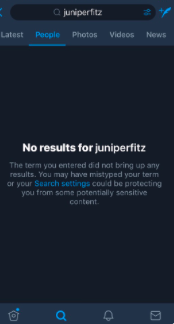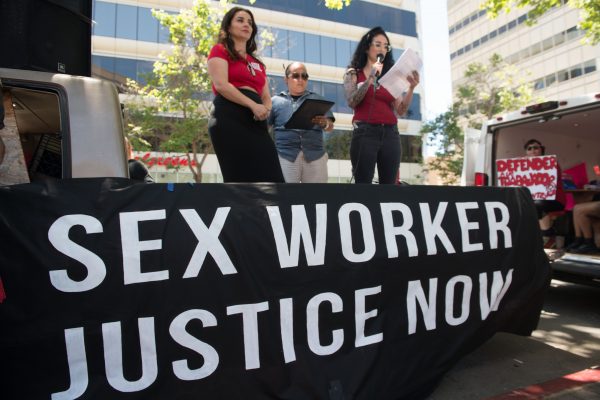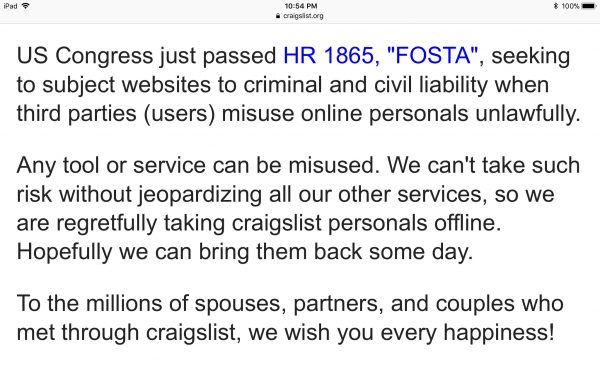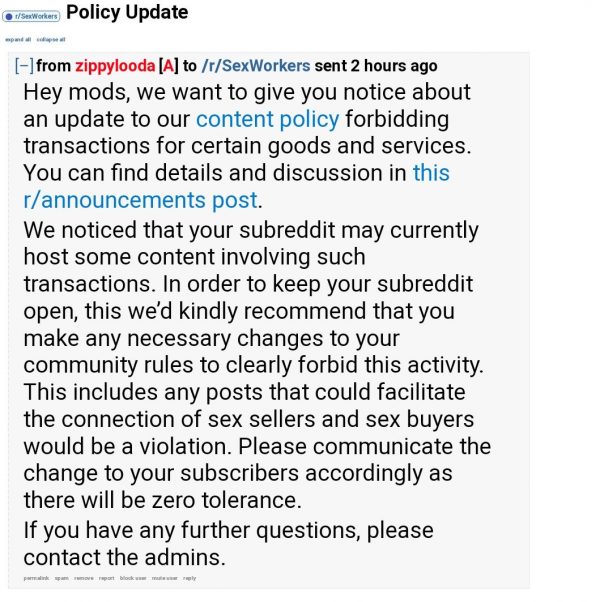Shadowbans: Secret Policies Depriving Sex Workers of Income and Community
Written collaboratively by Juniper Fitzgerald and Jessie Sage

Several months ago, we attended the Adult Entertainment Expo in Las Vegas, which included the Adult Video Network (AVN awards). The problematic aspects of such conventions notwithstanding—for example, a panel of “industry leaders” at the Expo admitted to never hearing of FOSTA—it is an event many sex workers count on for networking. This year, one thing stood out at the various parties and meetups: none of the people in attendance, from well-known porn stars to newly minted cam girls, could find each other on social media platforms. So we—your very much alive and visible authors—decided to search for one another. Sure enough, even typing our exact handles into Twitter’s search bar yielded “no results.”
Since AEE/AVN, other sex workers have publicly addressed shadowbanning. The day after International Whores’ Day on June 2, NYC-based Dominatrix Mistress Blunt tweeted, “It’s really upsetting that when I go to tweet about #IWD everyone is #shadowbanned and I can’t find them to tag and I can’t livestream important speeches because I’ve been banned from that feature too.” Sex workers are finding that Twitter and other platforms have shadowbanned a significant portion of our community. Shadowbanning is the increasingly common practice of social media platforms silently censoring a user’s content without either the user or her potential followers knowing. In the The Economist, the anonymous writer G.F. describes Twitter shadowbanning:
Shadowbanned users are not told that they have been affected. They can continue to post messages, add new followers and comment on or reply to other posts. But their messages may not appear in the feed, their replies may be suppressed and they may not show up in searches for their usernames. The only hint that such a thing is happening would be a dip in likes, favourites or retweets—or an ally alerting them to their disappearance.
In the year since The Economist column was published, shadowban testers have been created. Shadowban testers are able to determine whether a Twitter user is banned in search suggestions, general searches, and/or in their thread. Essentially, the test detects whether a user’s Twitter handle is suggested to others, whether their handle pops up in a general search, and/or if the user’s entire thread is invisible to other users.
In the column, G.F. further maintains that “the currency of social networks is attention.” While there may be some truth in this statement, for sex workers, the currency of social networks is also, well, currency. Accessing community and clients translates to income for people like us who are marginalized, stigmatized, and criminalized. So, when sex workers lose access to social media, we lose access to income. Shadowbanning, then, is an opaque practice that effectively denies sex workers their livelihood. Sex worker Leana Lane tells us over Twitter DM, “I suspect that fewer clients are seeing and booking me than they would otherwise [because of it].”
Realizing how pervasive shadowbanning had become, we began to ask questions: What exactly is shadowbanning? How do sex workers on Twitter know that they’ve been shadowbanned? What have sex workers tried to do to get around shadowbanning? And, perhaps most importantly, how has it impacted their businesses and their community?
 He was the perfect client. Well dressed and freshly showered, he brought me a small gift in which my precious dollar bills were discreetly enclosed, and our session finished before I was even fully undressed.
He was the perfect client. Well dressed and freshly showered, he brought me a small gift in which my precious dollar bills were discreetly enclosed, and our session finished before I was even fully undressed.

